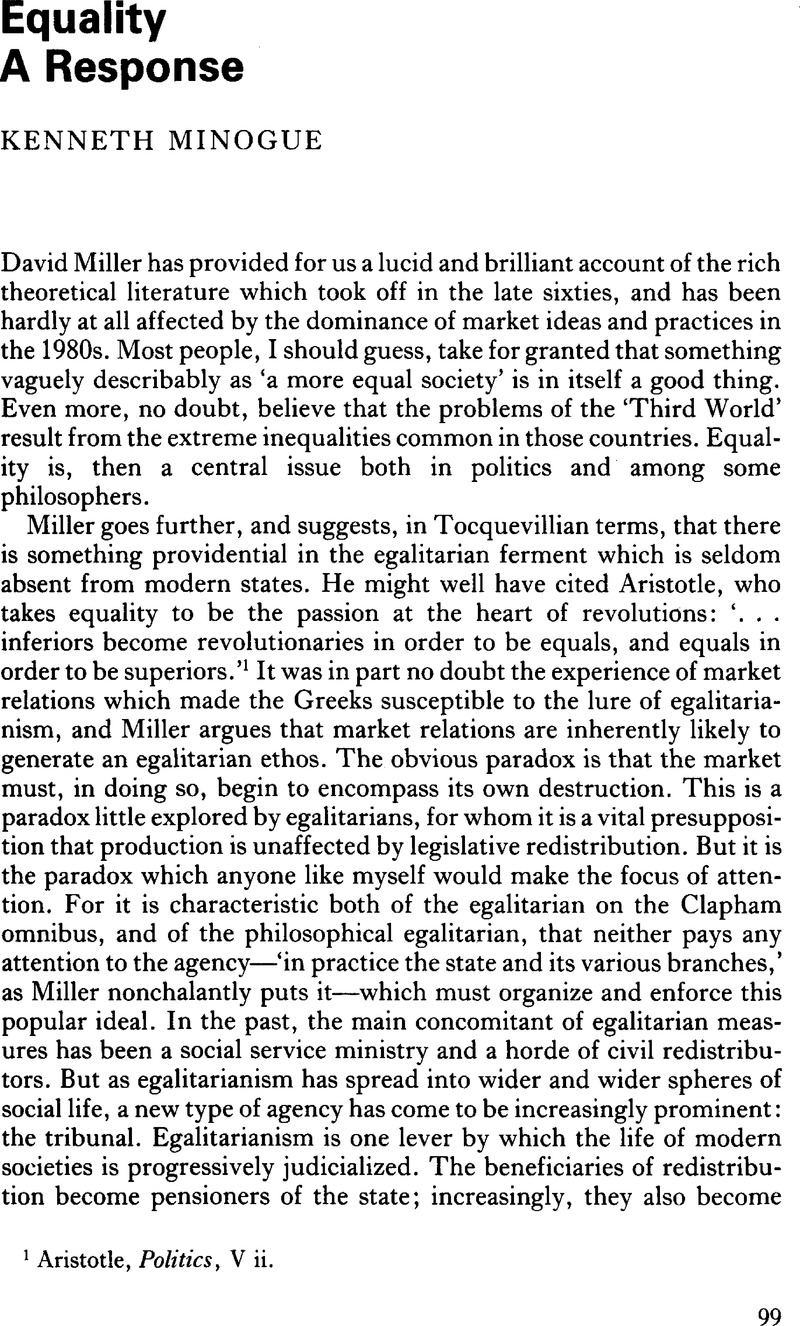No CrossRef data available.
Article contents
Equality: A Response
Published online by Cambridge University Press: 08 January 2010
Abstract

- Type
- Papers
- Information
- Copyright
- Copyright © The Royal Institute of Philosophy and the contributors 1989
References
1 Aristotle, , Politics, V ii.Google Scholar
2 I refer here, of course, to an invigorating critique of the ideal of equality by the philosopher Flew, Antony, in The Politics of Procrustes (London: Temple Smith, 1981).Google Scholar
3 Miller, see above, 85.
4 Miller, see above, 84.
5 I do not have space to exemplify the immense variety of things which one egalitarian or another thinks might be candidates for equalization but I have mentioned some of them in The Egalitarian Conceit, Centre for Policy Studies (London, 1989).Google Scholar
6 Some moral theorists, such as Professor David Raphael, even invented a whole class of such rights for people, called ‘rights of recipience’.
7 This is the source of one of the more interesting forms of self-contradiction with which egalitarianism is riddled. Among those who find the point of their lives in ‘struggling against’ inequalities are the egalitarians themselves. As Marx presciently noted, there would be no place for him in a communist society.
8 Hibbert, Christopher, The French Revolution (Harmondsworth: Penguin, 1980), 247.Google Scholar




